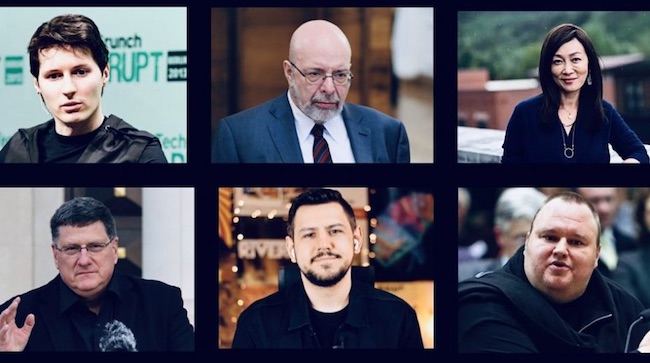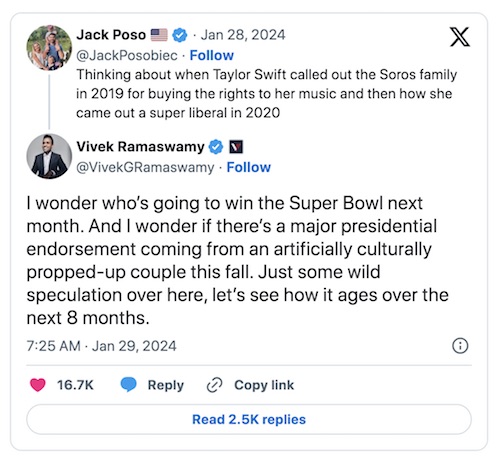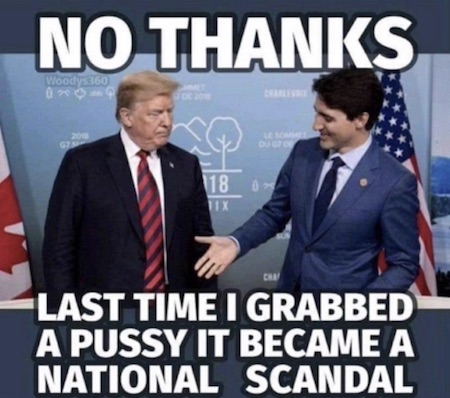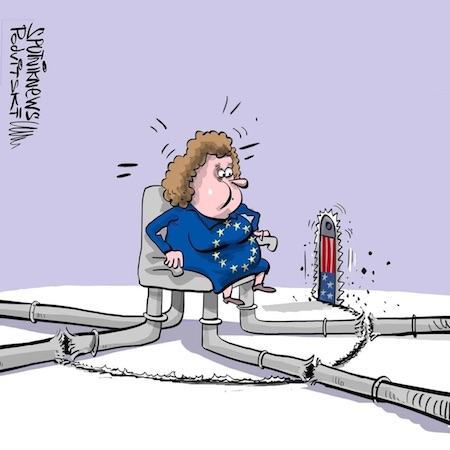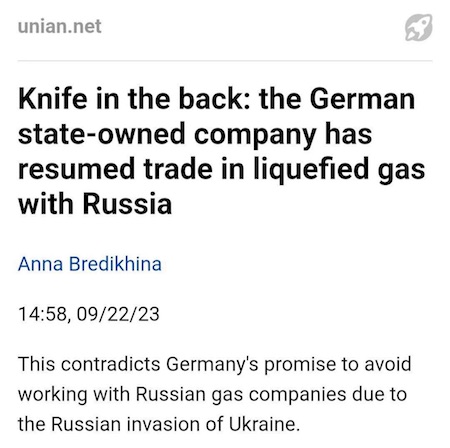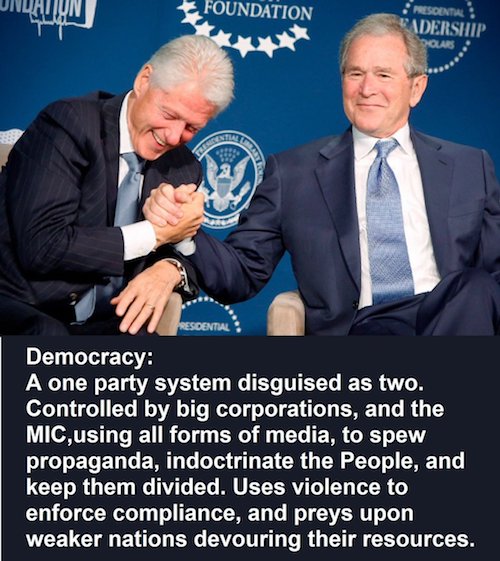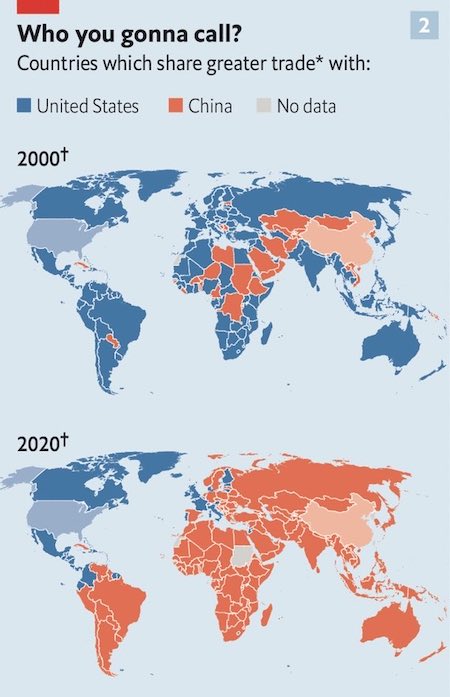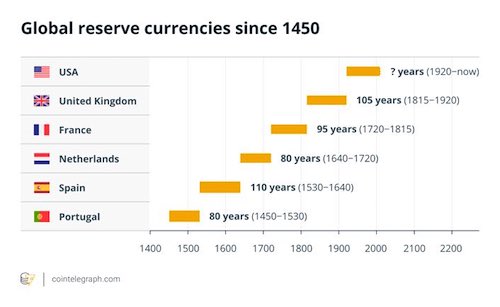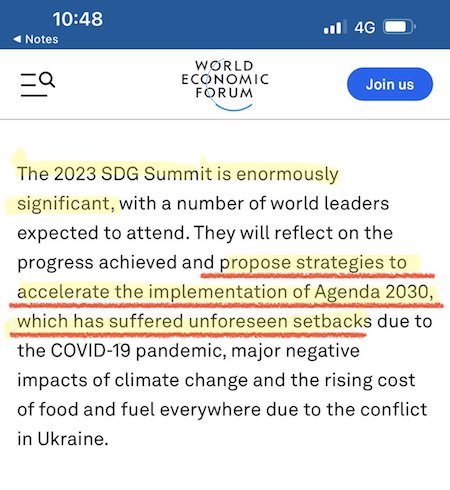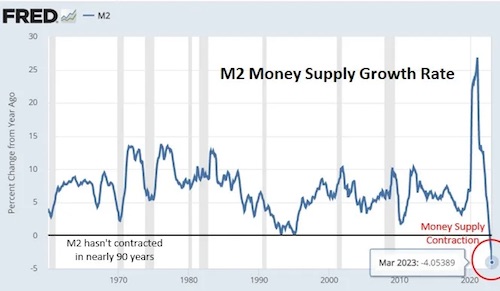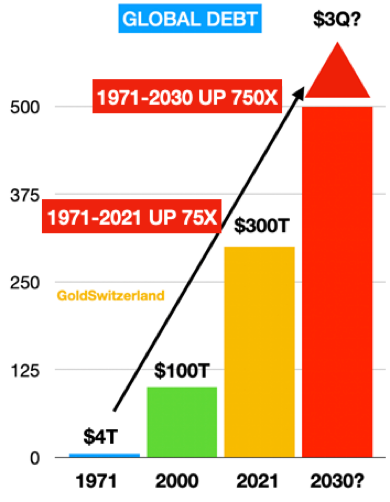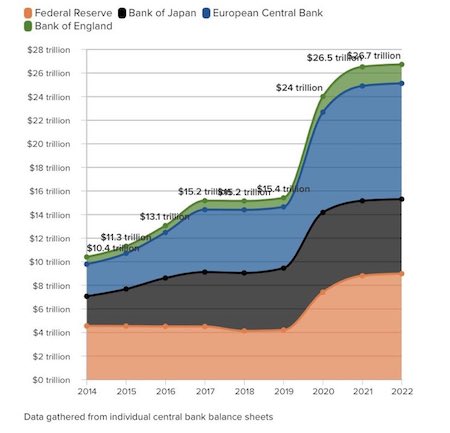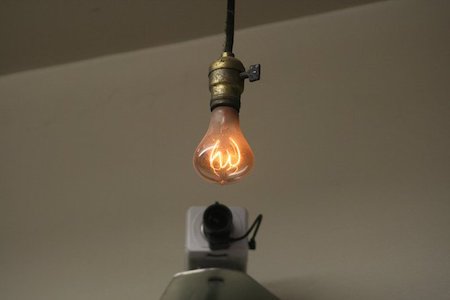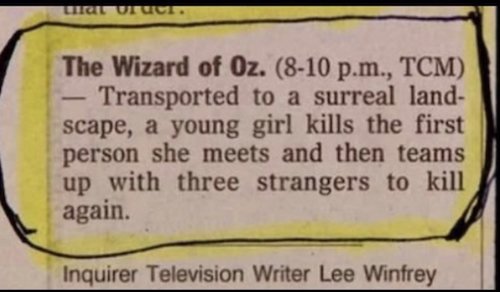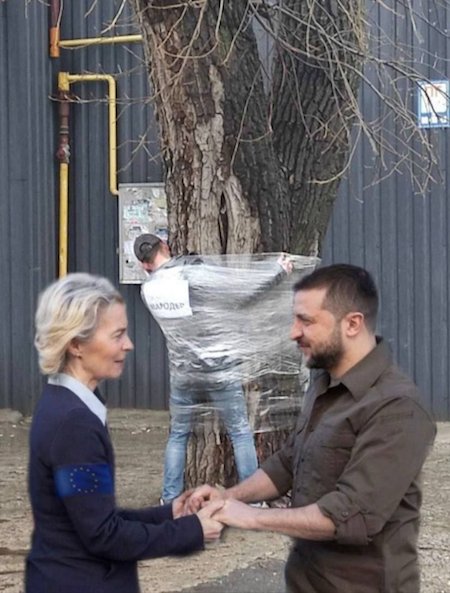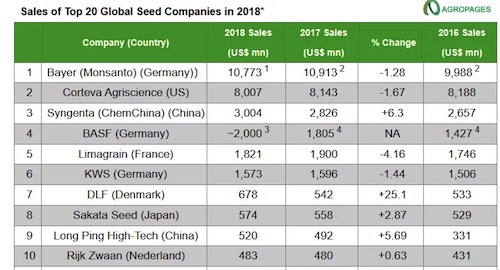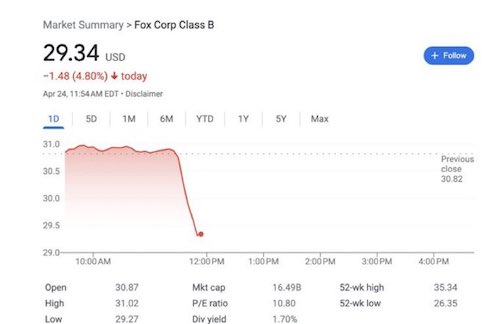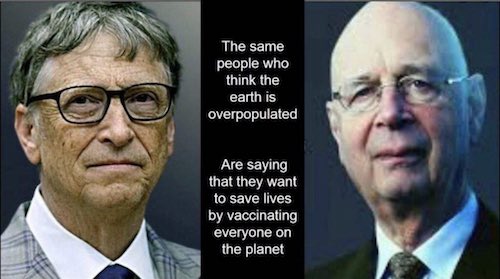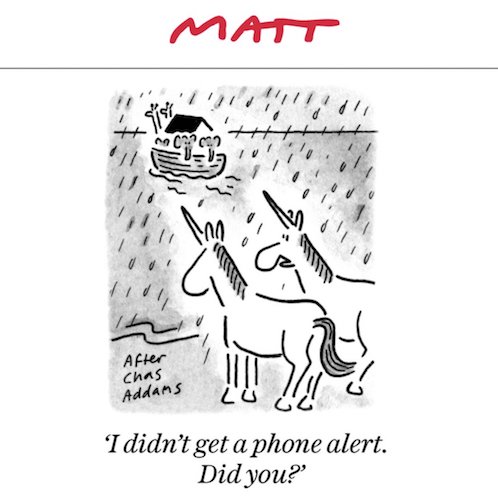
Gerard Dou A woman playing a clavichord 1665

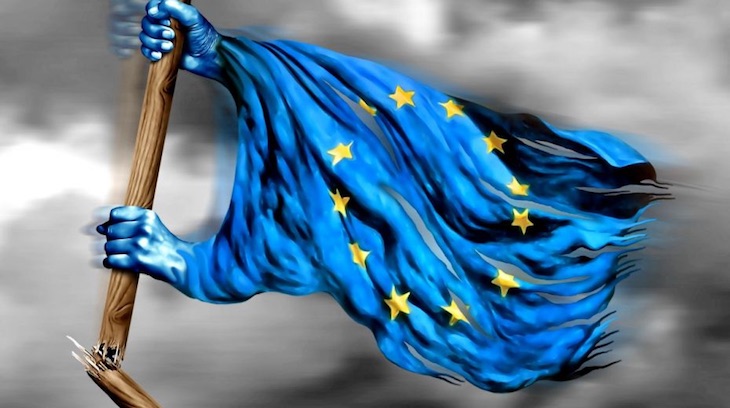

https://twitter.com/i/status/1864708358894506175
Pete Hegseth's lawyer Tim Parlatore: "We have all these anonymous complaints where people are saying things, aren't giving any specifics, they have no corroboration whatsoever, yet the people who were also there at the time are willing to come on the record by name and say 'this… pic.twitter.com/W5Jsbp5BW2
— Trump War Room (@TrumpWarRoom) December 4, 2024
https://twitter.com/i/status/1864406863980450163
Senator @LindseyGrahamSC: “I’ve known @PeteHegseth for a long time. I served with him in Afghanistan. The people over there said nothing but great things about him. The allegations against Pete are all anonymous sources. I am not going to make ANY decision based on an anonymous… pic.twitter.com/1FzraUniOj
— Trump War Room (@TrumpWarRoom) December 5, 2024
Alex Jones
Massive WW3 Update! Trump Kills 24 Billion In Ukraine War Funding To Force Zelensky To Accept Peace Talks
DJT will not be officially sworn in until January 20th, 2025 but he is already President in command, in the eyes of of the world.
Find Our Livestream Here… pic.twitter.com/vxyW1ShzTq
— Alex Jones (@RealAlexJones) December 4, 2024


“Now we have to dance and that that’s really the key, and that the 2026 election is actually the key moment.”
• Trump Has Two Years To Push His Biggest Policies Through – Gingrich (JTN)
President-elect Donald Trump has a two-year window to push through some of his most contentious proposals, before midterm elections potentially see the Democrats return to legislative power and divide the government. Trump is set to return to the White House with a majority in both chambers of Congress and a generally sympathetic Supreme Court. The rapid-fire turnaround of his cabinet nominees, moreover, suggests a greater sense of urgency within the incoming White House than in the first administration. Democrats took the House during the 2018 midterms, effectively ending Trump’s hopes of securing major legislative wins. Republicans, for their part, managed to wrest the chamber from the Democrats in 2010 and largely stonewall further key agenda items. Now, some Republicans are mindful that their trifecta victory in 2024 likely only represents a brief opportunity to make a lasting impact and have warned that Republicans will only maintain control by successfully delivering on their promises.
The first time around, Trump’s major legislative victory was the 2017 Tax Cuts and Jobs Act, which slashed the corporate tax rate and doubled the standard deduction. He punted on key budget items, such as funding for a border wall, in favor of an omnibus spending package and ultimately failed to negotiate with House Democrats when they took over the lower chamber to secure it. That episode even saw the government go into a protracted shutdown. “I mean, we’re all here happy, but my primary message is that all we won was a ticket to the dance,” former House Speaker Newt Gingrich said this week at the American Legislative Exchange Council. “Now we have to dance and that that’s really the key, and that the 2026 election is actually the key moment.” The Georgia Republican was the 50th speaker of the United States House of Representatives from 1995 through 1999 and was a leading figure in securing a Republican House for the first time in 40 years.
“If, like Franklin Delano Roosevelt, we can keep the House and maybe pick up a few seats, we are probably on the way to really creating a new stable majority,” he added. “If, like most times, the American people end up disappointed, our side doesn’t turn out and the Democrats pick up the house, then we’re back to politics as usual. So, what the brilliant nine-year effort of Donald Trump has done is given us a chance to truly change things.” Some incoming pro-Trump lawmakers are evidently aware of the potential for a political whiplash should Republicans fail to deliver and have hinted that Republicans will pursue the MAGA agenda with a close eye on 2026. “I’m confident Congress is going to back up President Trump 100% because we know, if we don’t secure our border, when we have this opportunity with [a] unified republican government, then what, at what point do we deserve re-election?” Rep.-elect Abe Hamadeh, R-Ariz., said in late November on the “John Solomon Reports” podcast.
“We’re able to collect, get the government that we wanted, and now we have to implement the change that the American people are demanding,” Hamadeh went on. “So that’s why I’m optimistic, not just, you know, for this next year or two, but even for a re-election in 2026 we are going to deliver the results that the American people demand.” The incoming Republican majorities, moreover, will feature many new faces in their leadership and include more Trump-aligned figures than in 2016. House Speaker Mike Johnson is expected to keep his post, which he secured late last year after former Rep. Matt Gaetz, R-Fla., led an effort to boot Kevin McCarthy from the job. Trump’s first House Speaker was Paul Ryan, who left leadership after the GOP lost the House in 2018 and has since been a leading critic of the president-elect on the right.
In the Senate, moreover, Sen. Mitch McConnell, R-Ky., will not lead the Republicans for the first time since 2007, though Senate Majority Leader John Thune, R-S.D., was one of his top deputies. McConnell publicly feuded with Trump during and after his administration over a litany of issues, notably on foreign policy, Senate norms, presidential conduct, and budget matters. While he will likely remain an influential voice in the upper chamber, his departure from the top post potentially signals that the upper chamber may be poised for a shift in approach.
Generally regarded as a more centrist Republican, Thune ran between the conservative Sen. Rick Scott, R-Fla., and the more old-school Republican Sen. John Cornyn of Texas, for leadership. Thune, for his part, has also pointed to 2026, but suggested that the prospect of looming midterms could prove advantageous to Republicans in a different manner. “I would think that the the election results were incredible repudiation of where they’ve been taking the country,” he said in mid-November. “And so it strikes me at least that Democrats, particularly if they have to run in 2026, might be inclined to help us on some of these issues. I think there’s that’s possibility always hope, hope that’s the case. We’ll find out soon enough.”

“The current crew, not their proposed Trump replacements, prompted the sick and tired American people to demand different people..”
• What the Trump Nominees Have Not Done—And Will Not Do (Victor Davis Hanson)
Deflated by the resounding November defeat, the left now believes it can magically rebound by destroying Donald Trump’s cabinet nominees. Many of Trump’s picks are well outside the usual Washington, DC/New York political, media, and corporate nexus. But that is precisely the point—to insert reformers into a bloated, incompetent, and weaponized government who are not part of it. Trump’s nominee for FBI director, Kash Patel, is already drawing severe criticism. His furious enemies cannot go after his resume, since he has spent a lifetime in private, congressional, and executive billets, both in investigations and intelligence. Instead, they claim he is too vindictive and does not reflect the ethos of the FBI. But what will Patel not do as the new director?
He will not serially lie under oath to federal investigators as did interim FBI Director Andrew McCabe, a current Patel critic. He will not forge an FBI court affidavit, as did convicted felon and agency lawyer Kevin Clinesmith. He will not claim amnesia 245 times under congressional oath to evade embarrassing admissions as did former Director James Comey. He will not partner with a foreign national to collect dirt and subvert a presidential campaign as the FBI did with Christopher Steele in 2016. He will not use the FBI to draft social media to suppress news unfavorable to a presidential candidate on the eve of an election. He would not have suppressed FBI knowledge that Hunter Biden’s laptop was genuine—to allow the lie to spread that it was “Russian disinformation” on the eve of the 2020 election. He will not raid the home of an ex-president with SWAT teams, surveil Catholics, monitor parents at school board meetings, or go after pro-life peaceful protestors.
Decorated combat veteran Pete Hegseth is another controversial nominee for secretary of defense. What will Hegseth likely not do? Go AWOL without notifying the president of a serious medical procedure as did current Secretary Lloyd Austin? Install race and gender criteria for promotion and mandate Diversity, Equity, and Inclusion training? Insinuate falsely that cabals of white supremacists had infiltrated the military—only to alienate that entire demographic and thus ensure the Pentagon came up 40,000 recruits short? Oversee the scramble from Kabul that saw $50 billion in U.S. military equipment abandoned to Taliban terrorists? Watch passively as a Chinese spy balloon traversed the continental United States for a week? Allow the chairman of the Joint Chiefs to promise his Chinese communist counterpart that the People’s Liberation Army would first be informed if the President of the United States was felt to issue a dangerous order?
Rotate into the Pentagon from a defense contractor boardship and then leave office to rotate back there to leverage procurement decisions? Oversee the Pentagon’s serial flunking of fiscal audits? Health and Human Services nominee Robert F. Kennedy, Jr. is certainly a maverick. He may earn the most Democratic hits, given his former liberal credentials. But what will RFK also not do as HHS secretary? Oversee his agencies circumventing U.S. law by transferring money to communist China to help it produce lethal gain-of-function viruses of the COVID-19 sort—in the manner of Dr. Fauci? Organize scientists to go after critics of mandatory masking and defame them? Give pharmaceutical companies near-lifetime exemptions from legal jeopardy for rushing into production mRNA vaccines not traditionally vetted and tested? Leave office to monetize his HHS expertise and thus make millions from the pharmaceutical companies?
Trump’s nominee for Director of National Intelligence, former congressional representative and military veteran Tulsi Gabbard, will soon be defamed in congressional hearings. But what has Gabbard not done? Joined “51 former intelligence authorities” to lie on the eve of the 2020 election that the Hunter Biden laptop “had all the hallmarks” of a Russian information/disinformation operation”—in an effort to swing the election to incumbent Joe Biden? Lied under congressional oath like former DNI James Clapper, who claimed he only gave the “least untruthful answer” in congressional testimony? Encourage the FBI to monitor a presidential campaign in efforts to discredit it—in the manner of former CIA Director John Brennan, who lied not once but twice under oath? Fail to foresee the American meltdown in Kabul, the Russian invasion of Ukraine, the Hamas terrorist attacks on Israel, or the Houthis takeover of the Red Sea?
We are going to hear some outrageous things in the upcoming congressional confirmation hearings. But one thing we will not hear about are the crimes, deceptions, and utter incompetence of prior and current government grandees. The current crew, not their proposed Trump replacements, prompted the sick and tired American people to demand different people. Voters want novel approaches to reform a government that they not only no longer trust but also now deeply fear.

“..they believe I threaten their institutional insanity. That is the only thing they are right about.”
• Trump Sticks With Hegseth As Ernst, Others Reportedly Eye Pentagon Post (JTN)
President-elect Donald Trump is standing by Pete Hegseth as he pushes back against allegations of sexual misconduct and appears to be locking up support among Senate Republicans for the Secretary of Defense post, but one upper chamber lawmaker is reportedly after the same job and pressuring Trump to back her instead. Trump has expressed his continued support for Hegseth multiple times this week, telling him to “keep fighting” for the nomination, even as Senate lawmakers openly discuss alternative candidates. “I spoke to Trump this morning,” Hegseth told reporters on Wednesday. “He supports us fully.” Hegseth’s nomination preceded that of former Rep. Matt Gaetz, R-Fla., to serve as Attorney General. Gaetz’s nomination drew considerable attention away from Hegseth for its short duration. The Florida lawmaker pulled out of contention in the face of stiff Senate opposition and his own alleged misconduct.
But Trump seems more willing to let Hegseth make his case and to push back against hesitant Republicans, some of whom seem to be flipping his way. The New York Post on Wednesday reported that no Senate Republicans were outright against Hegseth’s confirmation. “There are zero ‘nos’ right now,” a GOP source told the outlet. But while no Senate Republican has openly opposed Hegseth for defense secretary, at least one seems to be eyeing the job for herself and some lawmakers are openly discussing the prospect of his replacement with Gov. Ron DeSantis, R-Fla. The confirmation process will not formally begin until the Senate convenes in early January, giving Hegseth, awarded the Bronze Star for combat, roughly one month to make his case. In the meantime, the drama around his confirmation seems to have taken some of the pressure off of some of Trump’s other controversial nominees, like Tulsi Gabbard, Robert F. Kennedy Jr., and Kash Patel.
Trump and his team have thus far, resolutely supported Hegseth, with the president himself personally urging him to maintain his pursuit of the post. The Trump-Vance Transition Team, moreover, circulated a Wall Street Journal op-ed from Hegseth on Wednesday in which he pushed back on his media opponents and anonymous accusers. “The press is peddling anonymous story after anonymous story, all meant to smear me and tear me down,” Hegseth wrote in the op-ed. “It’s a textbook manufactured media takedown. They provide no evidence, no names, and they ignore the legions of people who speak on my behalf. They need to create a bogeyman, because they believe I threaten their institutional insanity. That is the only thing they are right about.” Hegseth himself has shown no signs of slowing down, posting an image of soldiers resting a helmet atop an upright rifle, apparently to honor a fallen comrade.
“Maybe it’s time for a [Secretary of Defense] who has… Led in combat. Been on patrol for days. Pulled a trigger. Heard bullets whiz by. Called in close air support. Led medevacs. Dodged IEDs. And understands—to his core—the power of this photo…because he’s been on that knee before,” Hegseth posted. Sen. Joni Ernst, R-Iowa, made multiple calls to Trump before meeting Hegseth asking him to jettison the nominee before her meeting with him, The Federalist reported. One unnamed source told the outlet that “[s]he’s waging a campaign to replace Pete with herself.” “She’s constantly calling and nagging him,” another said. “It wasn’t just one time.” A representative for Ernst spoke to the outlet, calling the allegations of Ernst’s interference “Washington whispers” and highlighting her meeting with Hegseth.
“I am told that Joni Ernst is the ringleader seeking to derail Pete Hegseth’s nomination by President Trump for Defense Secretary,” conservative commentator Mark Levin posted on Wednesday.“ She has worked to organize Republican opposition in the Senate and deny Hegseth a roll call vote on his nomination. All she needs is 4 or 5 Republicans to go along with her. She has also been involved in a press campaign against Hegseth.” Ernst has not publicly indicated she would oppose Hegseth’s confirmation, but has not committed to supporting him either. She met with the Defense Secretary designate on Wednesday, after which she posted a statement that left her options open. “I appreciate Pete Hegseth’s service to our country, something we both share. Today, as part of the confirmation process, we had a frank and thorough conversation,” Ernst posted on X. Trump backers online are livid with Ernst over the alleged effort to thwart Hegseth and are considering the prospect of a primary challenge to her in 2026.
“We are learning a lot about Joni Ernst and the Senate establishment right now. Trump faithful are talking about finding a primary challenger. This is getting very serious,” Charlie Kirk wrote. “We’re going to primary you and you’ll get this result. Stop the nonsense. Confirm or get a primary,” wrote pro-Trump account “Catturd”, along with a picture of the primary results in which a Trump-backed primary challenger defeated former Rep. Liz Cheney, R-Wyo. “Trump won Iowa with almost 56% of the vote. This is the kind of state where a primary makes sense and doesn’t put the majority in jeopardy. Ernst is up for re-election in 2026,” wrote commentator Lisa Boothe. Conservative heavyweight commentator Dan Bongino, a former Secret Service Special Agent, has amplified calls for a primary challenger to Ernst if she does not confirm Hegseth. He has further supported his confirmation and is rumored to be Trump’s pick to lead the Secret Service himself.

“..Artificial Intelligence and Cryptocurrency, two areas critical to the future of American competitiveness..”
• Trump Appoints David Sacks As New ‘White House AI & Crypto Czar’ (JTN)
President-elect Donald Trump on Thursday announced that former PayPal Chief Operating Officer David Sacks would be in charge of artificial intelligence (AI) and cryptocurrency policy for the White House. Trump has been filling out critical roles in his next administration since he won reelection last month, including nominating his presidential Cabinet picks. Cabinet officials must be confirmed by the Senate. Sacks, who founded the enterprise social media company Yammer, will be in charge of safeguarding online “free speech,” and helping to crackdown on technological censorship, Trump said. “In this important role, David will guide policy for the Administration in Artificial Intelligence and Cryptocurrency, two areas critical to the future of American competitiveness,” Trump wrote in a post on Truth Social.
“He will work on a legal framework so the Crypto industry has the clarity it has been asking for, and can thrive in the U.S.” The incoming president also announced that Sacks will lead the Presidential Council of Advisors for Science and Technology. “David has the knowledge, business experience, intelligence, and pragmatism to MAKE AMERICA GREAT in these two critical technologies,” Trump wrote in a subsequent post. “Congratulations, David.” Trump previously expressed doubts about cryptocurrency, even labeling it as a scam, according to Reuters, but embraced the technology during his presidential campaign.
https://twitter.com/i/status/1864845849551106261

The director of national intelligence is supposed to go with what other people say instead of making up her own mind?!
• Tulsi Gabbard A ‘Regular Reader’ of RT – ABC News (RT)
US President-elect Donald Trump’s pick to be director of national intelligence, Tulsi Gabbard, has been an avid reader of RT news and continued to follow the Russian site long after the Washington banned the network, ABC News reported on Thursday. The article claimed that reading RT makes Gabbard unsuitable for the role in Trump’s forthcoming administration. The president-elect announced in mid-November that he wants Gabbard to take the top intelligence position, causing outrage among establishment officials, who branded the pick a major security threat. Representative Debbie Wasserman Schultz called Gabbard a “likely a Russian asset,” mirroring smears that the former Democratic Party member has endured for years.
Hillary Clinton infamously claimed in 2019 that Moscow “groomed” Gabard to run in the 2020 primary election, predicting that she would run as an independent later in that cycle. However, Gabbard endorsed Joe Biden, and dropped out of the race. ABC News suggested that Gabbard’s foreign policy positions “have been shaped not by some covert intelligence recruitment… but instead by her unorthodox media consumption habits.” Anonymous aides told the outlet that their former boss “regularly read and shared articles from the Russian news site RT” and disregarded the fact that in 2017 the US branded it “the Kremlin’s principal international propaganda outlet.” ABC News added that “it was not clear to those former staffers whether or when she stopped frequenting the site.”
Gabbard, who served in the National Guard and is currently in the Army Reserve, has criticized the ‘forever wars’ that the US has been embroiled in over the years. She has argued that such conflicts do not serve American interests. While initially supporting Joe Biden’s handling of the Ukraine conflict, she later grew sceptical of the policy. That shift “has most galvanized her critics in the national security sphere,” ABC News said. The politician left the Democratic Party in 2022 and remained independent for two years. In October, she announced that she had joined the Republican Party, at a rally for Trump’s presidential campaign.

Interesting.
• Impoundment, For Lack Of A Better Word, Is Good (I&I)
If you’ve never heard the word “impoundment” before, you will – often – next year. And for good reason. Because this battle will determine whether government spending can ever be brought under control. Last year, President-elect Donald Trump said that “For 200 years under our system of government, it was undisputed that the president had the constitutional power to stop unnecessary spending through what is known as impoundment.” Since he’s been elected, he’s given every indication that he intends to reclaim this power. Indeed, the success of his “Department of Government Efficiency” run by Elon Musk and Vivek Ramaswamy depends heavily on Trump being able to spend less than Congress appropriates. This, of course, has the left freaking out. The grumblers say that Trump’s refusing to spend money Congress has authorized would be “unprecedented” and “a devastating power grab” that would “flip the power of the purse” and give Trump “authoritarian control” over the government.
There are just two big problems with these assertions. The first is that presidential impoundment dates back to the very beginnings of the nation. The second is that letting presidents impound funds appears to have been an effective tool for keeping federal spending under control. Impoundment is just a jargony word for instances where Congress appropriates a certain amount of money for a program in a given year, and the president refuses to spend all of it. A research paper published by the Center for Renewing America (CRA) provides a long and detailed historical account of impoundment, including its roots in English law and its use by presidents – Democrats and Republicans – throughout the nation’s history. Thomas Jefferson impounded funds. So did Madison, Buchanan, and Grant. Herbert Hoover, the CRA paper notes, “vigorously employed the impoundment power to decrease government spending in the midst of the Great Depression.”
FDR “refused to spend more than $500 million in public works funds on policy grounds.” Lyndon Johnson would “withhold appropriations that exceeded the president’s budget.” Even Trump-hating CNN admits that impoundment “occurred frequently in U.S. history, beginning in 1803 when Thomas Jefferson declined to buy gunboats to patrol the Mississippi as he negotiated the Louisiana Purchase with France.” While the Constitution forbids the president from spending more money than Congress has appropriated, there’s nothing in the Constitution that forbids the president from spending less. And lo and behold, the nation survived and thrived for nearly 200 years while the president had this authority. It wasn’t until 1974 that Congress stripped the president’s ability to impound funds. That year, lawmakers used the Watergate scandal and President Richard Nixon’s aggressive use of impoundment as an excuse to pass the Impoundment Control Act.
The law also created the Congressional Budget Office and the budget committees in the House and Senate, and “reasserted Congress’ power of the purse,” according to Democrats on the House Budget Committee. Well, what happened after Congress reasserted its power? Look at the two charts below. The first shows annual budget deficits as a share of GDP. The second shows the national debt as a share of GDP.
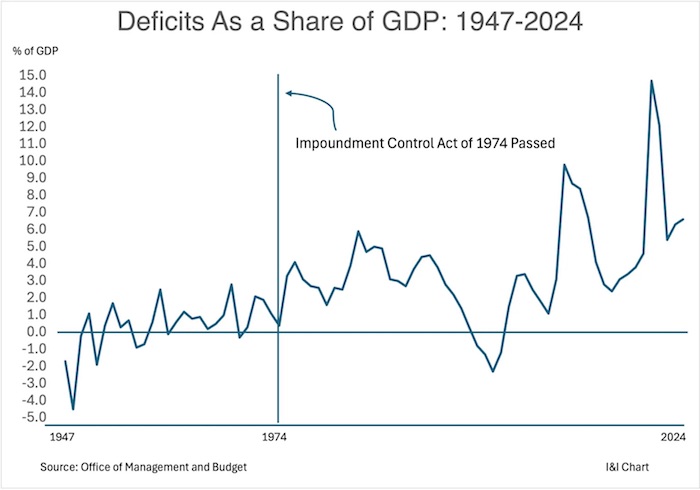
What do you see? In 1974, significant annual deficits became the norm. From 1947 to 1974, the federal deficit averaged 0.4% of GDP. Since 1974, deficits have averaged 3.8% of GDP. They’ve been close to 6% for President Joe Biden’s entire time in office. (Negative numbers in the chart are years when the government ran a surplus.) The nation’s debt, which had been trending downward as World War II debts were paid off, suddenly stopped declining in 1974. It’s been climbing fairly steadily ever since.

Trump is likely to challenge the Impoundment Control Act as unconstitutional. We hope he does, and that he succeeds, or at the very least forces Congress to fix that law. Because letting Congress have unlimited authority to set a floor on spending has been a fiscal disaster.

Pandora’s box.
• Democrat Calls For Biden ‘Blanket Pardon’ For Those Trump Could Target (JTN)
Democratic Pennsylvania Rep. Brendan Boyle on Wednesday asked President Joe Biden to issue a blanket pardon for law enforcement officials, military personnel, and other people President-elect Donald Trump could target in his next term. Biden issued a broad pardon for his son Hunter Biden on Sunday, which excused any crimes the younger Biden committed over a 10-year span that encompassed 2014 through 2024. The pardon means the first son cannot be prosecuted or sentenced for his tax charges, his federal gun charge, or any possible crime he committed while on the board of Burisma. Boyle claimed that Trump’s selection of Kash Patel as his next director of the FBI meant that he was looking to settle “personal scores,” instead of protecting Americans. Trump nominated Patel for the position last month.
“These patriots shouldn’t have to live in fear of political retribution for doing what’s right,” Boyle wrote in a statement. “That’s why I’m urging President Biden to issue a blanket pardon for anyone unjustly targeted by this vindictive scheme.” Patel, who has no current ties to the FBI, reportedly has plans to fire some high-ranking Justice Department officials and demote others, according to The Hill. “If we’re serious about stopping Trump’s authoritarian ambitions, we need to act decisively and use every tool at our disposal,” Boyle wrote. “Norms and traditions alone won’t stop him—Trump has shown time and again that he’s willing to ignore them to consolidate power and punish his opponents.” Boyle concluded that the “time for cautious restraint is over,” and pushed Biden to act quickly to “prevent Trump from abusing his power.”

Just so everyone knows what a real diplomat is.
• Lavrov-Tucker Interview: ‘For The Sake Of The Universe’ (ZH)
Tucker Carlson first unveiled Wednesday that he had traveled to Moscow to interview Russian Foreign Minister Sergey Lavrov, and the full interview has subsequently been published Thursday night. Among the most important messages conveyed was directed by Lavrov toward Washington and its allies, which “must understand that we would be ready to use any means not to allow them to succeed in what they call strategic defeat of Russia.” And referencing Russia’s recent use of its Oreshnik hypersonic missile, Lavrov expressed hope that Kiev’s backers took “seriously” the new weapon, for which Russia says there is no defense, as Moscow remains ready to use “any means” to defend itself. “We are sending signals and we hope that the last one, a couple of weeks ago, the signal with the new weapons system called Oreshnik… was taken seriously,” Lavrov emphasized. The very opening question posed by Tucker got straight to the main point which is surely on the minds of many viewers:
Tucker Carlson: Minister Lavrov, thank you for doing this. Do you believe the United States and Russia are at war with each other right now?
Sergey Lavrov: I wouldn’t say so. And in any case, this is not what we want. We would like to have normal relations with all our neighbors, of course, but generally with all countries especially with the great country like the United States. And President Vladimir Putin repeatedly expressed his respect for the American people, for the American history, for the American achievements in the world, and we don’t see any reason why Russia and the United States cannot cooperate for the sake of the universe.
Tucker Carlson: But the United States is funding a conflict that you’re involved in, of course, and now is allowing attacks on Russia itself. So that doesn’t constitute war?
Sergey Lavrov: Well, we officially are not at war. But what is going on in Ukraine is that some people call it hybrid war. I would call it hybrid war as well, but it is obvious that the Ukrainians would not be able to do what they’re doing with long-range modern weapons without direct participation of the American servicemen. And this is dangerous, no doubt about this. We don’t want to aggravate the situation, but since ATACMS and other long-range weapons are being used against mainland Russia as it were, we are sending signals. We hope that the last one, a couple of weeks ago, the signal with the new weapon system called Oreshnik was taken seriously.
Russia’s longtime foreign minister describes the war with the United States and how to end it.
(0:00) Is the US at War With Russia?
(12:56) Russia’s Message to the West Through Hypersonic Weapons
(17:47) Is There Conversation Happening Between Russia and the US?
(23:18) How Many… pic.twitter.com/0UkkNjAkhw— Tucker Carlson (@TuckerCarlson) December 5, 2024

“The remarks come amid a string of media reports that suggested France and the UK have been considering deploying their troops to Ukraine.”
• Lavrov Slams ‘Fantasies’ About Western Troops In Ukraine (RT)
The ongoing speculation about the potential deployment of troops to Ukraine by Western nations are “fantasies” that “only make the situation worse,” Russian Foreign Minister Sergey Lavrov has said. The top diplomat delivered the remarks on Thursday during a press conference of the Organization for Security and Co-operation in Europe (OSCE) ministerial meeting in Malta. “I believe that all these fantasies only make the situation worse and show that the people who are running around with such ideas stubbornly prefer not to hear the very clear warnings that [Russian] President [Vladimir] Putin has repeatedly made publicly,” Lavrov stated. The remarks come amid a string of media reports that suggested France and the UK have been considering deploying their troops to Ukraine.
The force is reportedly supposed to act as peacekeepers to observe a ceasefire in the event of Moscow and Kiev engaging in talks. The topic has been also invoked by the German leadership, yet Chancellor Olaf Scholz has said the deployment of the country’s troops to Ukraine was “out of the question” before a “real ceasefire” was achieved. Lavrov also reiterated that Moscow welcomes any constructive initiatives to bring the Ukraine conflict to an end. However, Russia does not believe any Western-based organizations will be of any help, and is seeking to strengthen security for everyone in “our whole continent” of Eurasia, he said.
“All those initiatives floated by our partners on different continents, which are aimed at finding a political solution, they, of course, must take into account the issue of ensuring the security interests of each country and, of course, the issue of respecting human rights,” the top diplomat stressed. Relations between Russia and the collective West have changed and will not return to the situation prior to the escalation of the Ukraine conflict in early 2022, Lavrov warned. “All the previous years after the end of the Cold War, the West agreed on some right things, rhetorically praised these right things, but in reality grossly violated all the agreements and did everything to suppress the legitimate interests of Russia,” Lavrov said.

“..Blinken argued that Kiev had “hard decisions” to make about further mobilization.”
• Ukraine Preparing For End To Conflict (RT)
Kiev’s public opposition to Western calls that it draft 18-year-olds for military service is part of a strategy for winning an election if the conflict with Moscow ends next spring, the Ukrainian outlet Strana has claimed. Washington and its allies have publicly demanded the expansion of the draft to mobilize the 18-to-25 demographic, most recently on Wednesday, when US Secretary of State Antony Blinken made the argument in Brussels. According to sources in the Ukrainian presidency, however, Kiev has opposed this as part of “a strategy to prepare for the scenario of a quick end to the war and the election afterward,” Strana reported on Thursday. One possibility considered by Vladimir Zelensky is a negotiated end to the hostilities shortly after the inauguration of US President Donald Trump on January 20, the outlet said. The other option is that the talks will fail and the fighting will go on “for a long time.”
Public statements about lowering the mobilization age “are being made in case the war ends soon and there are elections, so that they can talk about how they saved the gene pool of the nation,” Strana’s source in Kiev said. In case the talks fail and the fighting continues, the mobilization will have to be expanded sooner or later, “and Bankovaya will go for it, finding hundreds of reasons to explain the change in position,” the outlet’s source added, referring to the address of the Ukrainian president’s office. Speaking to Reuters on Wednesday, Blinken argued that Kiev had “hard decisions” to make about further mobilization. Even if Ukraine got all the money and the ammunition it wanted from the West, Blinken said at a NATO press conference, “there have to be people on the front lines,” he said.
“Getting younger people into the fight, we think, many of us think, is necessary,” the US diplomat told Reuters. “Right now, 18- to 25-year-olds are not in the fight.” The Russian Defense Ministry has estimated Ukraine’s losses at more than 500,000 since February 2022, though Zelensky has publicly admitted to less than a tenth of that. Kiev has sought to mobilize another 160,000 fighters in the coming months, to replenish depleted frontline units, as Russian forces gain ground.

“..Kiev could endorse his peace plans rather than being an obstacle..”
• Zelensky Aide Visits US To Charm Trump Team – WSJ (RT)
Vladimir Zelensky’s right-hand man Andrey Yermak is trying to convince people close to US President-elect Donald Trump that Kiev could endorse his peace plans rather than being an obstacle, The Wall Street Journal reported on Wednesday. The Republican has claimed that he can resolve the Ukraine conflict in 24 hours after he returns to the Oval Office in January. Yermak, the chief of staff to the Ukrainian leader, is visiting the US to meet key figures picked by Donald Trump for his future administration, the Ukrainian Foreign Ministry and multiple news outlets have said. According to the WSJ, Kiev has arranged contacts with Susie Wiles, the co-chair of Trump’s election campaign who has been tapped to become White House chief of staff, Keith Kellogg, who Trump has picked to be a special envoy to Ukraine, and Mike Waltz, the incoming national security adviser.
Prior to the November presidential election, Zelensky caused a GOP outlash by visiting an arms factory in the battleground state of Pennsylvania, where he was received by Democrats. Republicans have accused the Ukrainian leader of campaigning for their rivals, with House Speaker Mike Johnson demanding that Kiev sack its ambassador to Washington, who organized the trip. The lobbying attempt by Yermak comes as Ukrainian forces are suffering from battlefield defeats and a shortage of reinforcements. In recent remarks, Zelensky has acknowledged that his country cannot beat Russia militarily and expressed a desire to restore control over all territories Kiev claims through diplomatic efforts.
According to CNN, Kiev has ordered the troops which occupy part of Kursk Region in Russia to hold on at all costs until Trump’s January 20 inauguration. The operation, which has resulted in almost 38,000 Ukrainian casualties, according to Kremlin estimates, was meant to secure a bargaining chip in future talks. Trump’s transition team has reportedly proposed freezing hostilities along the current front line and suspending Ukraine’s bid to join NATO for at least a decade. Moscow has said that no peace negotiations will happen as long as Ukrainian forces remain in Kursk Region. NATO’s intention to welcome Ukraine was a key cause of the conflict, Russian officials have maintained.

“..the chances for compromise with Ukraine are currently “zero” and that this won’t change until “people in Kiev begin to understand there’s no way Russia will go the way they’ve suggested.”
• Trump Team Cold With Ukrainians Over NATO – WSJ (RT)
US President-elect Donald Trump’s transition team is holding high-level talks with Ukrainian officials in Washington but NATO membership for Kiev is unlikely to be on the table, the Wall Street Journal has reported. Ukrainian leader Vladimir Zelensky’s closest adviser Andrey Yermak met on Wednesday with Trump’s choice as special envoy for Russia and Ukraine, Keith Kellogg, as well as incoming national security adviser Mike Waltz. While Kellogg has publicly expressed support for the Biden administration’s move to rush more weapons to Ukraine, believing it will give Trump “leverage” in future talks with Moscow, there has been little appetite among the president-elect’s team to offer Ukraine NATO membership, the paper said. “The Trump team has shown little interest in offering Ukraine membership in the North Atlantic Treaty Organization,” the outlet wrote, noting that Zelensky still considers this a “vital security guarantee.”
Last week, a statement from the Ukrainian Foreign Ministry insisted that membership in the military bloc was “the only real security guarantee” for the country and that Kiev would not accept “any alternatives, surrogates or substitutes” for full membership. During his election campaign, Trump frequently promised he would end the Ukraine conflict within “24 hours,” but offered few details on how he would accomplish this. This week, however, Reuters reported that his advisers have now mapped out three possible plans to end the conflict, and all of them include Kiev ceding territory to Moscow and giving up on its aspiration to join NATO. According to WSJ’s report, Yermak traveled to Washington ready to communicate Ukraine’s “readiness for peace.” However, one person familiar with Kiev’s position told the outlet that it must be a “sustainable peace” and that a “temporary” arrangement will not serve US or Ukrainian interests.
Lucian Kim, a Ukraine analyst at International Crisis Group, told the outlet that Kiev might already recognize that NATO membership is not “right around the corner” but suggested that it may not make sense for them to concede this “before negotiations have even started.” On Thursday, the Deputy Foreign Minister of Russia Sergey Ryabkov told CNN that Moscow remains open to hearing Trump’s plans, but has not received any concrete proposals. He warned, however, that under no circumstances would Russia compromise on its core national interests. He also cautioned that the chances for compromise with Ukraine are currently “zero” and that this won’t change until “people in Kiev begin to understand there’s no way Russia will go the way they’ve suggested.”

“..Hungary is “pressing hard so that Donald Trump’s goal of ending this war quickly becomes a reality..”
• Hungary Comments On Trump’s Desire To End Ukraine Conflict (RT)
US President-elect Donald Trump’s plans to resolve the Ukraine conflict could soon become a reality and Budapest intends to help the Republicans achieve that goal, Hungarian Minister of Foreign Affairs and Trade Peter Szijjarto has said. Following a meeting in Washington on Wednesday with Trump’s candidate for National Security Advisor, Mike Waltz, Szijjarto noted that the current US administration under President Joe Biden appears to only wish to prolong the Ukraine conflict and is trying to make it harder to establish peace after Trump takes office in January. Szijjarto stated that in the US, the Democrats appear to be “on the side of war” while the Republican party is “on the side of peace.” Because of this, the issue of establishing peace in Ukraine became one of the key topics in his conversations with Waltz, the Hungarian diplomat said.
”The American Republicans and we, Hungarian patriots, think similarly, and even in some cases completely identically, about the most important things in the world,” Szijjarto said, noting that this provides a “very stable basis” for future bilateral relations between the two countries. The diplomat added that Hungary is “pressing hard so that Donald Trump’s goal of ending this war quickly becomes a reality,” and warned that failure to achieve peace in Ukraine would increase the risk of escalation on a daily basis. “We can only hope that nothing will happen in Ukraine before January 20 that will irreversibly change the situation and significantly complicate efforts to achieve peace,” the Hungarian minister said.
Meanwhile, Moscow has said that it has yet to receive a detailed plan from Trump or his team regarding a potential resolution of the conflict. However, Russian Deputy Foreign Minister Sergey Ryabkov has stated in an interview with CNN that Russia would carefully examine such a plan when it is submitted, but noted that it would not agree to any concessions that compromise its national security interests. Ryabkov also issued a warning to the outgoing Biden administration that Russia would respond to any provocations and urged the West not to underestimate Moscow’s resolve to defend its core interests using all means necessary.

“Everybody knows that it would be absurd and a sign of unbelievable political weakness, if we in Germany and in Europe now waited for others to conduct these phone conversations, and we sort of commented on the news shown on TV.”
• Not Talking With Putin ‘Absurd’ – Scholz (RT)
It would be absurd not to communicate with Russian President Vladimir Putin over the Ukraine conflict, German Chancellor Olaf Scholz has said. By failing to do so, Germany and other EU states would be consigning themselves to irrelevance, he argued to lawmakers in Berlin. Scholz held a phone conversation with Putin in mid-November, which was their first in almost two years. The German head of government urged the Kremlin to withdraw its troops from territories claimed by Ukraine, reiterating his determination to support Kiev for “as long as necessary.” The Russian president, in turn, attributed the escalation of hostilities in 2022 to NATO’s “long-standing aggressive policy aimed at creating an anti-Russian bridgehead on Ukrainian territory.”
According to a readout published by the Kremlin, Putin also expressed readiness to engage in talks with Ukraine, stressing, however, that new territorial realities should be taken into account and the “root causes of the conflict” eliminated. During a Q&A session in the German parliament on Wednesday, an opposition MP from the Christian Democratic Union (CDU) voiced skepticism over last month’s call. Scholz responded by stating: “Everybody knows that it would be absurd and a sign of unbelievable political weakness, if we in Germany and in Europe now waited for others to conduct these phone conversations, and we sort of commented on the news shown on TV.” Scholz further insisted that Western European nations must talk to Moscow, despite a difference of opinion.
Previously commenting on the conversation, the German chancellor similarly dismissed criticisms that his outreach could undermine Western unity, arguing that diplomatic channels should remain open and saying that he expected to talk to Putin again. Ukrainian leader Vladimir Zelensky has criticized the phone call between Scholz and Putin, claiming that it could weaken the Kremlin’s “isolation.” Putin said in late November that “there was nothing unusual” about his call with Scholz, with both officials laying out their positions on the Ukraine conflict. The Russian president added that some other Western leaders were “willing to resume” dialogue, stressing that he remained open to such overtures.
The phone conversation between Scholz and Putin received mixed reactions in the West. In a post on X, Polish Prime Minister Donald Tusk claimed that “no-one will stop Putin with phone calls.” Canadian Prime Minister Justin Trudeau emphasized the importance of maintaining a “level of engagement with counterparts who in many cases we disagree with.”

“We would like to discuss with all our partners in this process the way to cut the channels of financing and arming” the terrorists..”
• West Backing Terrorists In Syria – Russia (RT)
Russia has reports that the US and the UK might be implicated in supporting the al-Qaeda-affiliated militants currently on the offensive in Syria, Foreign Minister Sergey Lavrov has said. Hayat Tahrir-al-Sham (HTS) terrorist group, previously known as Jabhat al-Nusra, launched a surprise attack from Idlib last week and has since taken Aleppo and Hama. US journalist Tucker Carlson asked Lavrov who was supporting the terrorists in Syria, during the interview that aired on Thursday. ”Well, we have some information,” Lavrov said. “The information which is being floated and it’s in the public domain, mentions, among others, the Americans, the Brits. Some people say that Israel is interested in making this situation aggravated so that Gaza is not under very close scrutiny.” “It’s a complicated game. Many actors are involved,” the Russian diplomat added.
Lavrov explained to Carlson that Russia, Iran, and Türkiye brokered a ceasefire in Syria in 2017 and again in 2020, calling this Astana Format “a useful combination of players.” “The rules of the game are to help Syrians to come to terms with each other and to prevent separatist threats from getting strong,” the diplomat said. “That’s what the Americans are doing in the east of Syria when they groom some Kurdish separatists using the profits from oil and grain sold, the resources which they occupy.” “We would like to discuss with all our partners in this process the way to cut the channels of financing and arming” the terrorists, he added. Lavrov has already spoken with his Turkish and Iranian colleagues, he told Carlson, and intends to meet with them again on Friday at a conference in Qatar.
Russia will push for “strict implementation” of the deal concerning Idlib because that province of Syria is where the terrorists emerged from.“The arrangements reached in 2019 and 2020 provided for our Turkish friends to control the situation in the Idlib de-escalation zone and to separate the HTS from the opposition, which is non-terrorist and which cooperates with Türkiye,” Lavrov said. Military and security leaders of all three countries are also in contact with each other, Russia’s top diplomat added. Carlson sought a meeting with Lavrov, saying he was appalled that the US and Russia are inching closer to an open war over Ukraine. He also tried to get an interview with Ukraine’s Vladimir Zelensky but this was blocked, reportedly by the US government.

Complex. Pepe has a hard time too.
• The Syria Riddle: How It May Turn Into The First BRICS War (Pepe Escobar)
The timeline tells the story. November 18: Ronen Bar, Israel’s Shin Bet chief, meets with heads of MIT, Turkey’s intel. November 25: NATO Chief Mark Rutte meets with Turkey’s Sultan Erdogan. November 26: Salafi-jihadis assembled by Hayat Tahrir al-Sham (HTS), formerly Nusa Front, supported by Turkish intel, plus a hefty Rent-a-Jihadi coalition, launch a lightning-fast attack against Aleppo. The Rent-a-Jihadi offensive originated in Greater Idlibistan. That’s where tens of thousands of jihadis were holed up, according to the – now proven failed – 2020 Damascus-Moscow strategy, which Turkey had to grudgingly accept. The Rent-a-Jihadi mob comprises scores of mercenaries who crossed over from – where else – Turkey: Uighurs, Uzbeks, Tajiks, Ukrainians, even ISIS-K imports.
Iranian Foreign Ministry spokesman Esmail Baghaei, earlier their week, confirmed the Salafi-jihadi offensive was coordinated by US/Israel. Baghaei did not mention Turkey, even as he stressed the terror attack happened immediately after Israel accepted a ceasefire with Hezbollah – already broken by Tel Aviv dozens of times – and after Netanyahu publicly accused Syrian President Bashar al-Assad of “playing with fire” by allowing the transit of modern Iranian missiles and military equipment via Syria to Hezbollah. Right before the ceasefire, Tel Aviv smashed virtually all communication routes between Syria and Lebanon. Netanyahu subsequently stressed that the focus now is on “the Iranian threat”, essential to smash the Axis of Resistance. According to a Syrian special services source, talking to RIA Novosti, Ukrainian advisers played the key role in the capture of Aleppo – providing drones and American satellite navigation and electronic warfare systems, and teaching Syrian collaborators and Islamic Party of Turkestan operatives how to use them.
Syrian Arab Army (SAA) communications were completely jammed by these electronic warfare systems: “The assault groups and drones were equipped with encrypted GPS devices and extensive use of AI, so that the use and navigation of attack UAVs and kamikaze drones took place from a long distance.” The mechanism was set in place months ago. Kiev made a straightforward deal with Salafi-jihadis: drones in exchange for batches of takfiris to be weaponized against Russia in the US/NATO proxy war in Ukraine. What is Turkey really up to? The practical role of Turkey in the Salafi-jihadi Greater Idlibistan offensive is as murky as it gets. Over the past weekend, Foreign Minister Hakan Fidan, significantly also a former intel chief, denied any Turkish role. No one – apart from the NATO sphere – believes it. No Salafi-jihadi in northwest Syria can as much as strike a match without a Turkish intel green light – as the Ankara system funds and weaponizes them.
The official Turkey line is to support the Syrian – Salafi-jihadi – “opposition” as a whole while slightly deploring the Greater Idlibistan offensive. Once again, classic hedging. Yet the logical conclusion is that Ankara may have just buried the Astana process – by betraying their political partners Russia and Iran. Erdogan and Hakan Fidan, so far, have failed to explain to the whole of West Asia – as well as the Global South – how this sophisticated Rent-a-Jihadi op could have been set up by US/Israel without any knowledge whatsoever by Turkey. And in case this would have been a trap, Ankara simply has no sovereign power to denounce it.

Air Marshal Anil Chopra (Retired), an Indian Air Force veteran fighter test pilot and is the former Director-General of the Center for Air Power Studies in New Delhi.
• The Great Game in the Arctic (Anil Chopra)
The Arctic region, still relatively unexplored, is recognized as a rich repository of untapped natural resources, particularly oil, gas, and marine life. It is also historically viewed as a potential flashpoint for great-power conflict. Russia has long maintained a dominant presence in the area. However, NATO’s expansion northward has compelled Moscow to significantly increase its military footprint. Growing superpower China has shown an escalating interest in Arctic affairs, while India, despite its geographical distance, has also established a foothold in the region. With increased US confrontation with both China and Russia, these two powers have fostered greater cooperation and coordination in Arctic matters. Covering over one sixth of the Earth’s landmass, the Arctic region encompasses the North Pole and is characterized by vast expanses of floating ice, with ridges that can reach up to 20 meters thick.
It is estimated to hold nearly 22% of the world’s undiscovered oil and natural gas reserves, with Russia accounting for 52% of the Arctic’s total energy resources and Norway holding 12%. Global industrialization and rising emissions of carbon dioxide and other greenhouse gases have resulted in increased temperatures, leading to rapid glacial melting. In 2024, the minimum extent of Arctic sea ice was recorded at 4.28 million square kilometers – approximately 1.8 million square kilometers below the long-term average. The rate of sea ice reduction is nearly 13% per decade, suggesting that the Arctic could become ice-free during the summer by 2040. The consequences of melting ice are profound, potentially raising sea levels and threatening many island territories and coastal cities. Climate change and global warming have garnered international attention, highlighted by discussions at recent forums such as COP29 in Baku, Azerbaijan.
Unlike Antarctica, which is governed by a 1959 treaty allowing only peaceful activities, no analogous treaty exists for the Arctic. Established in 1996, the Arctic Council addresses issues pertinent to Arctic nations, comprising the United States, Canada, Denmark, Iceland, Norway, Sweden, Finland, and Russia. Observer countries must acknowledge the sovereignty and jurisdiction of Arctic states while recognizing the extensive legal framework governing the Arctic Ocean. In May 2013, India became the 11th country to gain permanent observer status at the Arctic Council. Both Russia and the United States have long maintained military bases and surveillance systems in the Arctic, including nuclear deterrent capabilities.
Russia has operated nuclear-powered icebreakers in the region for some time. Although the Arctic Military Environmental Cooperation (AMEC) agreement between Russia, the US, and Norway facilitated the decommissioning of certain Soviet and US assets, the increasing interest from additional nations has sparked a new Cold War dynamics between the two primary powers. The cooperative atmosphere that once prevailed has deteriorated, particularly in light of geopolitical tensions stemming from the situation in Ukraine since 2014. Increased ice melting has begun opening the Arctic region for longer periods of time in summer months. There are three main routes that could revolutionise the international commercial shipping industry in the 21st century.
The Northern Sea Route (NSR) lies along the arctic coast of Russia. Ice clears up here first and therefore is available for longer. It also has the highest commercial potential: the route reduces the maritime distance between East Asia and Europe from 21,000 kilometres via the Suez Canal to 12,800 km. It implies a transit time saving of 10-15 days. NSR was used extensively for natural resource extraction and transportation during the Soviet Era. In 2009, two German ships led by a Russian icebreaker made the first commercial journey across the NSR from Busan in South Korea, to Rotterdam in Netherlands, establishing good commercial prospects.
The North West Passage (NWP) is another route between the Atlantic and Pacific Oceans, crossing Canada’s Arctic Archipelago that was first used in 2007. It may open for more regular use soon. While Canada claims it as an internal waterway, the US and others insist it is an international transit passage, and must allow free and unencumbered movement. This route could reduce shipping time between the Middle East and Western Europe to around 13,600 km compared to 24,000 km via the Panama Canal, however parts of the route are just 15 metres deep, thus reducing its viability. China seems to be interested in using this passage to eastern parts of US, as the Panama Canal too has ship size and tonnage restrictions. The third one is a potential Transpolar Sea Route (TSR) which could use the central part of the Arctic to directly link the Bering Strait and the Atlantic Ocean port of Murmansk. This route is hypothetical for now and may appear as climate change progresses.




Rogan
Correct @joerogan…the Conspiracy Theorists were right…
“The House released a 500 page report on the ‘Pandemic’. They basically said all of the conspiracy theorists were correct. Every single one of them. No repercussions…no apologies. None of it…”
pic.twitter.com/bcOo9ERNyp— Liz Churchill (@liz_churchill10) December 5, 2024

Nodules
https://twitter.com/i/status/1864667844610244990

Dog&crow
Dog and crow are best friends pic.twitter.com/uiVcPG4k06
— B&S (@_B___S) December 4, 2024

Dog street
https://twitter.com/i/status/1864732510669713795

Dogball
— Doglover (@puppiesDoglover) December 4, 2024

Dog snow
https://twitter.com/i/status/1864386165266055356

Food
— out of context dogs (@contextdogs) December 4, 2024


Support the Automatic Earth in wartime with Paypal, Bitcoin and Patreon.





